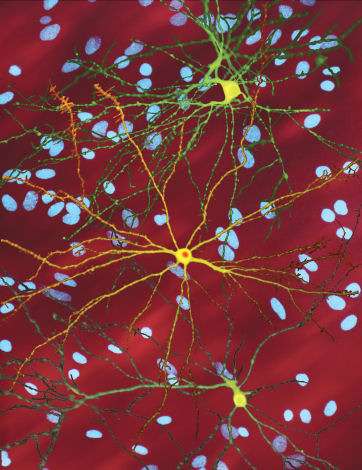UK Researchers Achieve Breakthrough in Slowing Huntington's Disease Progression with Gene Therapy

UK scientists have achieved a historic milestone by slowing Huntington's disease progression through an innovative gene therapy, offering hope for future treatments and patient stability.
In a significant advancement in neurodegenerative disease treatment, UK scientists have successfully slowed the progression of Huntington's disease for the first time using a pioneering gene therapy. The groundbreaking trial, conducted at University College London (UCL), involved a novel treatment called AMT-130, which is administered directly into the brain via injection. This therapy introduces functional DNA into patient cells permanently, aiming to modify the genetic factors of the disease.
Results from the early-stage clinical trial indicated that some participants experienced a substantial reduction—up to 75%—in the speed of disease progression over three years. Out of 29 patients, those receiving the highest doses of AMT-130 showed the most notable slowdown. Remarkably, some patients' conditions stabilized, and at least one participant was able to return to work, highlighting the potential impact of this therapy.
Huntington's disease is caused by a single genetic mutation and currently has no cure. It affects approximately 8,000 people in the UK, impairing movement, cognition, and mood. The study's lead researcher, Ed Wild of UCL's Huntington's Disease Center, stated, "This result changes everything. Based on these findings, AMT-130 is likely to become the first licensed treatment to slow Huntington's disease, which is truly transformative."
Professor Mike Hanna, director at UCL's Queen Square Institute of Neurology, described the findings as a new chapter in gene therapy development, with potential implications for other neurodegenerative disorders. The company uniQure plans to submit an application for accelerated approval to the US Food and Drug Administration early next year, with subsequent submissions in the UK and Europe.
This breakthrough offers new hope for Huntington's patients and could pave the way for more effective treatments in the future.
Stay Updated with Mia's Feed
Get the latest health & wellness insights delivered straight to your inbox.
Related Articles
Link between High Temperatures, Aging, and Increased Disease Risk
New research links rising temperatures and aging to weakened immunity and increased susceptibility to infections. Discover how heat stress impacts gut health and immune function in vulnerable populations.
The Brain-Boosting Benefits of Rosemary: Enhancing Memory, Reducing Anxiety, and Protecting Against Alzheimer’s
Discover the cognitive and health benefits of rosemary, from enhancing memory and reducing anxiety to potential protection against Alzheimer's disease, supported by modern science and traditional use.
Revolutionizing Malaria Treatment: The Promise of Monoclonal Antibodies
Recent research highlights the potential of monoclonal antibodies to effectively prevent malaria by targeting early parasite stages, offering hope for new treatments in resistant regions.
Essential Insights from a Respiratory Specialist on Managing and Understanding Asthma
Learn essential insights from a respiratory specialist on the causes, diagnosis, and latest treatment options for asthma, emphasizing the role of environment and allergy management.



